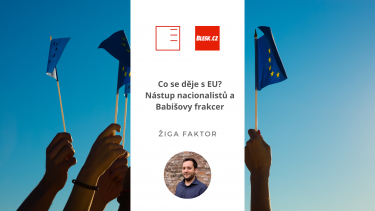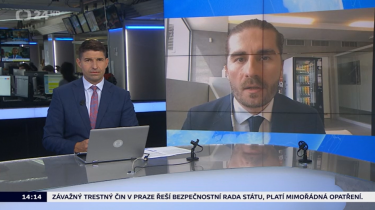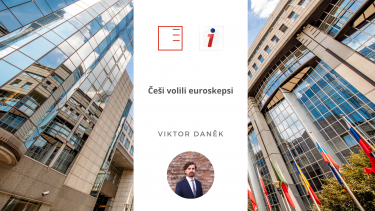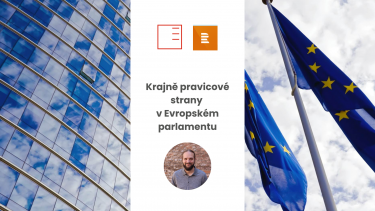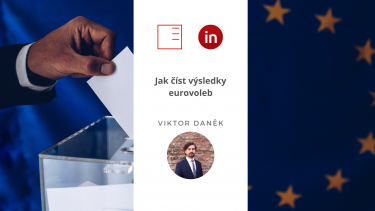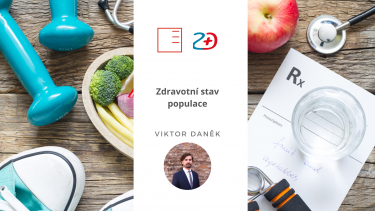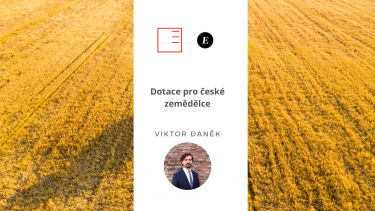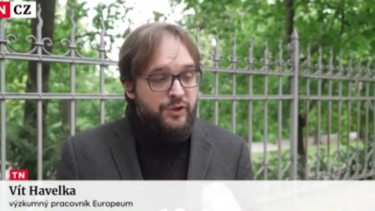Blesk.cz | What is happening to the EU?
The political helm of Europe is taking a new direction. And according to political analysts, not a favourable one. The results of the elections in France showed this, with the far right winning 37 seats and the left-wing coalition 32. What is more, since the weekend it has been known that a new faction is to be created in the European Parliament - one that is more focused on national interests. One of the three founders is the head of Czech ANO movement, Andrej Babiš. Žiga Faktor, deputy director and head of the Brussels office of EUROPEUM Institute, comments for Blesk.cz.
Show more
ČT24 | Political shift after the European Parliament elections and its impact on the future of the EU
After the European Parliament elections, the strongest faction remains the European People's Party, a grouping that includes TOP09, KDU-ČSL and the Mayors and Independents. The Socialists and Democrats are second and Renew Europe, which includes the winning ANO party, is third. How significantly did the elections affect the European Parliament? Viktor Daněk, deputy director of EUROPEUM Institute, commented for ČT24.
Show moreRTVS | Elections show Europeans' new priorities
After the European Parliament elections, the two largest factions retained their positions. However, far right parties has made gains at the expense of the Liberals and Greens. It was significant in France, Germany, Austria and other Member States. Why more and more young people vote for them? Will the right-wing groups in the EP join forces? And how can they influence migration policy, support for Ukraine or the Green Deal? For RTVS programme Z prvej ruky comments Žiga Faktor, deputy director and head of the EUROPEUM Institute's Brussels office.
Show more
iDnes.cz | Czechs voted Euroscepticism
European Parliament elections have been held in the EU Member States, but they have not shown the change of the course. According to Viktor Daňek, deputy director of EUROPEUM Institute, the elections did not shake Europe too much, but the future parliament will slightly lean more to the right.
Show moreČRo Plus | Far-right parties in the European Parliament
Surveys suggest that the far-right is gaining strength. Experts predict the possibility of a "Trump-like moment" in Europe. How significant is this risk for key EU players such as Germany, France, or Italy? Are there similar reasons for the rise in support for right-wing parties across Europe? These and other questions were answered by Vít Havelka, Senior Researcher at EUROPEUM Institute for Czech Radio.
Show more
Novinky.cz | How to Interpret results of the European Elections
The ANO movement won the European elections, while the Spolu coalition took second place. The biggest individual winner was Filip Turek. In other European countries, the most resonant event was the significant defeat of French President Emmanuel Macron, who subsequently announced early elections. Viktor Daněk, Deputy Director of EUROPEUM Institute, analyzed the European elections in the Novinky Express program.
Show moreZdravotnický deník | Population Health
Politicians and companies should start putting more emphasis on prevention and education about active and healthy lifestyles, because the health of the population has a major impact on the competitiveness of companies and the national economy. Viktor Daněk, Deputy Director of EUROPEUM Institute, commented on this issue.
Show moreEkonomický deník | Subsidies for Czech farmers
Farmers in the Czech Republic receive the fifth largest package of national subsidies in the European Union, behind Poland, Germany and Austria. Moreover, the whole system is set up in such a way that small farmers often do not receive subsidies at all. According to Viktor Daňek, deputy director of EUROPEUM Institute, the system cannot function fairly without a cap or a significant degression in payments.
Show moreČT24 | The rise of the far-right in the EU elections
What are the reasons for the rise of the far-right in the upcoming European elections? Can we say that the far-right still holds anti-European views? What would the agenda of the European Parliament look like if the far-right gained more support? How likely is it that the European People's Party and Liberals would cooperate with the Conservatives? Žiga Faktor, deputy director and head of EUROPEUM Institute's Brussels office, provided live answers on the program "Předvolební Evropa" on ČT24.
Show more
Televizní noviny | Do the EU elections have the potential to change the support of Ukraine?
There have been opinions that call for changes of the EU including defense cooperation or foreign policy. The topic that should stay important even after the EU elections is the support of Ukraine. Do the EU elections have the potential to change the intensity of the EU's support of Ukraine? Vít Havelka, a senior researcher at EUROPEUM Institute answered for the main evening broadcast of TV Nova.
Show more
Staroměstské náměstí 4/1
Prague 1 - Staré Město
110 00
tel.: +420 212 246 552
email: europeum@europeum.org
https://www.europeum.org
